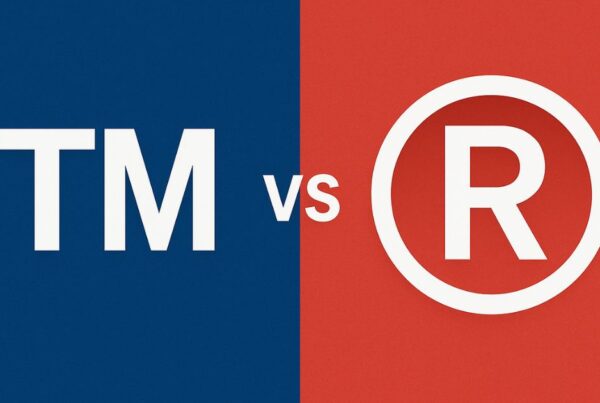In business partnerships, disagreements are inevitable. What matters most is not whether partners argue, it’s how they resolve those disagreements when they happen. One of the smartest ways to protect your company from internal chaos is by building a strong dispute resolution clause into your operating or shareholder agreement.
Without one, even minor disagreements can stall operations, drain finances, and sometimes destroy the business altogether.
At Ayala Law, we’ve seen firsthand how clear, well-drafted dispute resolution clauses can save business partners from years of unnecessary litigation.
What Is a Dispute Resolution Clause?
A dispute resolution clause is a section in a business contract (like an operating agreement or shareholder agreement) that sets out the steps the parties must follow if they have a disagreement.
In other words, it’s a roadmap for how to handle conflict before lawyers and lawsuits become unavoidable.
The clause can specify whether partners must first try negotiation, mediation, or arbitration before going to court, and where those proceedings will take place.
For Florida business owners, this is especially important because once a dispute hits the courts, the process can be lengthy and costly. A good clause helps you avoid that.
Why Business Partners End Up in Deadlock
A deadlock happens when business partners can’t agree on a key decision and there’s no mechanism in place to break the tie. Common causes include:
- Equal Ownership and Voting Power: Two 50/50 owners can easily reach a standstill.
- Unclear Decision-Making Authority: When roles and responsibilities aren’t defined, every decision becomes a debate.
- Emotional Disagreements: Personal dynamics often cloud judgment and make compromise harder.
- Lack of Exit Strategy: Partners who can’t agree on how to part ways may keep fighting instead of resolving.
Without a clear dispute resolution process, these disagreements can paralyze a business, preventing it from hiring, investing, or growing.
How a Well-Drafted Clause Prevents Gridlock
A dispute resolution clause isn’t just a procedural formality. Done right, it can:
- Encourage Early Resolution: Requiring negotiation or mediation first forces partners to communicate before things escalate.
- Save Money and Time: Mediation and arbitration are often faster and cheaper than litigation.
- Keep Operations Running: Defining how decisions are made ensures that one dispute doesn’t stop the entire business.
- Protect Privacy: Arbitration keeps sensitive business matters out of the public record.
- Offer Certainty: Knowing exactly where and how disputes will be resolved gives partners peace of mind.
Key Elements Every Dispute Resolution Clause Should Include
If you’re drafting or reviewing your agreement, make sure it answers these questions:
1. How Will Disputes Be Handled?
Will the partners first meet to discuss the issue? Will they proceed to mediation, arbitration, or court if talks fail? Laying out this sequence prevents confusion later.
2. Who Will Resolve the Dispute?
For arbitration or mediation, specify the forum (for example, the American Arbitration Association) or allow the parties to agree on a neutral third party.
3. Where Will the Dispute Be Resolved?
This determines jurisdiction and venue, an important point for businesses operating across multiple states or countries.
4. How Will Costs Be Shared?
The clause should specify how mediation or arbitration fees are divided to prevent secondary disputes.
5. What Happens During a Deadlock?
You can build in a “buy-sell” mechanism (where one partner can buy out the other) or appoint a tie-breaker (like a neutral board member) to make final decisions.
Example: The 50/50 Business That Stopped Operating
We once consulted a Florida company where two co-owners, each holding 50 percent, disagreed over a major expansion decision. Their operating agreement said nothing about how to resolve a tie.
The result? The company couldn’t move forward with contracts, vendors, or even payroll decisions. Months of gridlock eventually forced both owners into litigation that could have been avoided with a simple dispute resolution clause.
This scenario is common and entirely preventable.
Florida Law and Dispute Resolution Clauses
Florida courts generally uphold dispute resolution clauses as long as they’re clear and agreed upon by all parties. Under Florida Statutes §44.104, for instance, arbitration is a recognized alternative to litigation.
However, the enforceability of a clause depends on its language. A poorly drafted clause can be challenged or lead to parallel court proceedings. This is why it’s important to have an experienced business attorney draft or review your agreements.
How a Business Litigation Attorney Can Help
Even with strong contracts in place, disputes sometimes still happen. A business litigation attorney can:
- Review and strengthen your existing agreements.
- Help you draft new dispute resolution clauses that reflect your company’s goals.
- Represent you in mediation, arbitration, or court when necessary.
- Protect your business from unnecessary financial and operational risk.
At our law firm, we routinely help business owners design contracts that minimize internal conflict and protect the future of their companies.
The Bottom Line
Disagreements between partners are inevitable, but long, costly deadlocks don’t have to be. A carefully drafted dispute resolution clause is one of the most effective ways to keep your business moving, even when partners disagree.
If your operating or shareholder agreement doesn’t have one, or if you’re unsure how enforceable yours is, contact one of our experienced attorneys in Miami at 305-570-2208.
You can also contact our founding attorney Eduardo A. Maura at eduardo@ayalalawpa.com.
Schedule a case evaluation online here.
[The opinions in this blog are not intended to be legal advice. You should consult with an attorney about the particulars of your case].
Subscribe to Our Blog
Stay informed with our latest blog posts delivered directly to your inbox. Gain valuable legal insights, tips, and advice from our seasoned attorneys.








